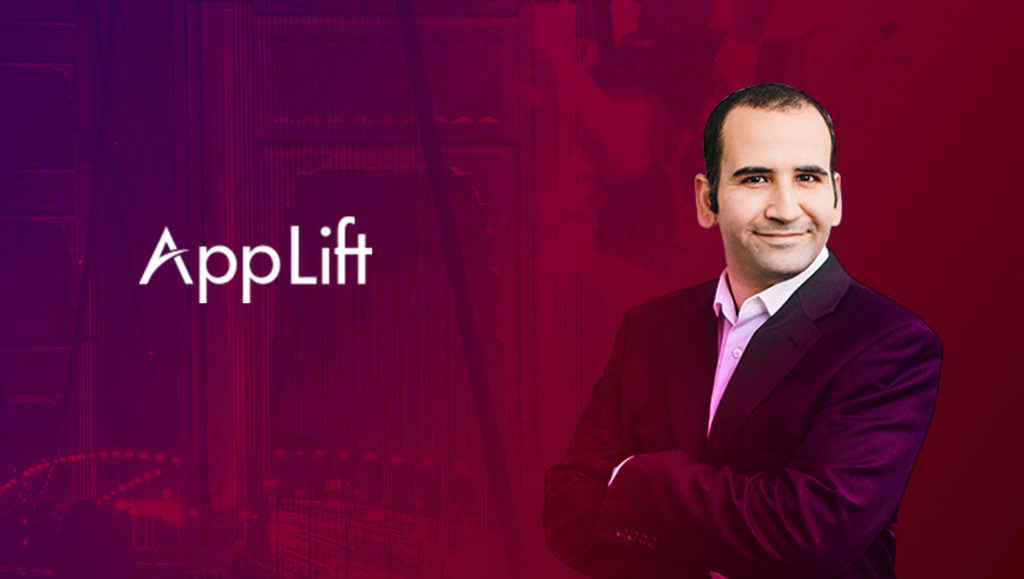Digital is at the core of every brand interaction. With growing number of B2B apps for SaaS sales, the state of data-driven app marketing is in a dynamic flux. We spoke to Maor Sadra, Managing Director and Chief Revenue Officer (CRO) at AppLift.
As the data sets become more granular, advertisers benefit from the improved analysis as well as tracking performance from the initial touchpoint of the ad with the user through to the final conversion and post-install engagement.
Tell us about your role at AppLift and the team/technology you handle.
I am a Managing Director and the Chief Revenue Officer (CRO) at AppLift and have been in the ad tech space for over fifteen years. I have experience in display, video, mobile media across programmatic and traditional media, and as such my work involves bringing both operational and strategic experience to AppLift.
What is the ‘State of Data-driven App Marketing’ in 2018?
Tricky question …
I think that the state of data-driven app marketing is well on its way to reaching a point where the term “Marketing” will be replaced by “Marketing Automation” or “Sales Automation” – a day where advertisers can define a strategy and ROI goals and let the platforms do the bidding (pun intended). The path to this is currently hindered by fraud, conflict of interests and a lack of alignment in the value chain between Advertisers and Publishers (including all of the ad tech and martech players in between).
Thanks to the extremely competitive nature of mobile ad tech, many companies (such as AppLift) are heavily vested in educating and maturing the market, building technologies and investing in innovation to resolve these challenges. I believe we’ll eventually reach a stage where the value chain will be aligned, and data-driven app marketing will indeed be 100 percent data and technology-driven App Sales Automation.
How could blockchain technology impact the whole ad tech industry? Could you provide some relevant examples/ context to this disruption?
There has been a lot of buzz around Blockchain’s potential to cause long-term positive changes for our industry by forcing transparency into the ad-buying and delivery processes. Some companies are likely to make technological progress with Blockchain by introducing a decentralized ledger for verification and digitizing the IO. This, in my opinion, would be the biggest impact of Blockchain that will help in solving advertising’s twin problems of fraud and in transparency.
By adopting a secure digital ledger for transactions, Blockchain can force stakeholders into being transparent about the ad-buying and delivery process, ensuring low costs and improving the customer experience. Theoretically, Blockchain can also come in as an industry regulation by eliminating self-attributing tactics of bigger players and also guiding us in the direction of accepting attribution standards.
What percentage of ad spend could blockchain technology monetize? Does it really have the potential to outgrow expectations from the mobile advertising campaigns in 2018?
I’m skeptical that Blockchain technologies for ad tech will have any significant impact on our industry during 2018. This is the year of ideas, of entrepreneurs – innovation and garage startups. It’s not yet the year to worry about scale.
How would you define Mobile Customer Experience from a modern CRO’s perspective?
The present-day mobile customer experience goes beyond developing an app and hoping your users will download it. To create sophisticated mobile experiences, app advertisers and developers must look into areas of security and data protection, especially now with the GDPR deadline looming over the industry. And then there are the technological innovations that are driving how apps adapt to the new ways in which users interact with an app.
Augmented Reality, voice technologies, and IoT are defining the new-age interaction of users. App and mobile devices need to be seamlessly integrated by adopting these innovations in order to provide maximum value.
How do you leverage AI/ML and data science at AppLift? What AI companies are you particularly interested in —
It is often said data is the new oil and big data is what runs the engines for modern advertisers. AI and Machine Learning have a tremendous impact on our daily work. Real-Time Bidding (RTB), lookalike targeting, and user data enhancement are three core areas that benefit from machine learning. Algorithms are much more efficient than humans at evaluating exactly which attributes of impressions are good predictors of better ad performance.
As the data sets become more granular, advertisers benefit from the improved analysis as well as tracking performance from the initial touchpoint of the ad with the user through to the final conversion and post-install engagement.
Another area in ML particularly interesting for us is chatbot interfaces, which are opening up great innovations in the field of conversational commerce and is full of potential for mCommerce apps.
Tech giants like IBM, Google, Amazon, and Microsoft are increasingly focusing on innovations that bring machine learning technologies to the forefront. These tech giants are already offering machine learning models as a service with solutions that reduce the time for marketers. Cloud Vision API, Cloud Natural Language, and Azure Machine Learning Studio are few of the popular cloud MLaaS models that allow advertisers to tailor their offerings to reach the customers with greater efficiency.
Thank you, Maor, for chatting with us on app sales automation and Blockchain technology.




















